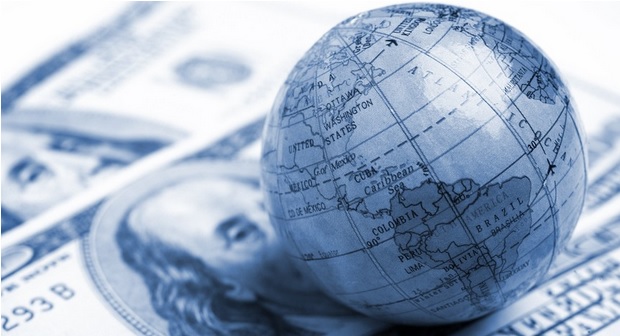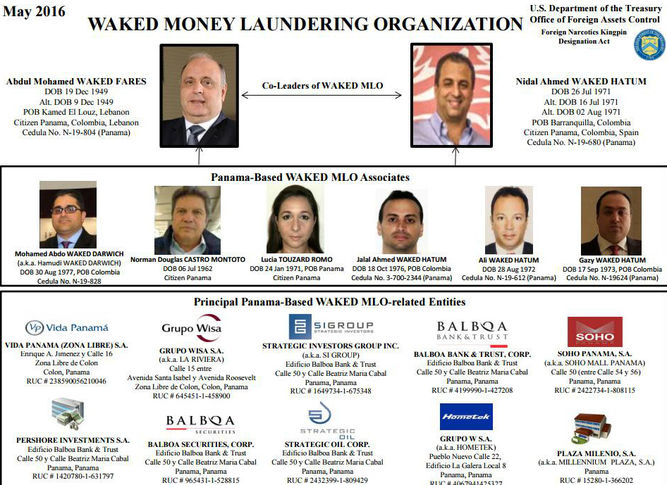How to Open an Offshore Bank Account in Cayman Islands – Cayman Banking Guide
The Cayman Islands is one of the world’s largest and most respected financial centers boasting a wide variety of offshore bank accounts and wealth management options. In this article, I will explain how to open an offshore bank account in Cayman Islands. If you are looking for the best in wealth management, tax planning, and investment services from a tax neutral jurisdiction, you may want to open an offshore bank account in Cayman Islands.
Just south of Cuba and northwest of Jamaica, the Cayman Islands are a British Overseas Territory in the western Caribbean. They were settled by the British in the 1730s and became a Crown colony in 1962. These 3 islands are home to about 56,000 people representing more than 100 nationalities, of which about 50% are of Caymanian descent. The largest city is George Town with around 29,000 residents.
The preverbal offshore bank account in Cayman Islands was made famous (or infamous) by to many books and movies to count and has become synonymous with tax cheats and money launders. Adding insult to injury, Obama pandered to this pop culture image when he attacked Mitt Romney in 2012 for his use of the island as a home for his money.
The truth about the offshore bank account in Cayman is far removed from these fairytales sold to the uninitiated. The Islands are one of the most transparent and professional of the tax neutral jurisdictions, allowing large corporations and sophisticated investors to maximize the international tax benefits available to them from their home country (ie. Loopholes in the United States tax code for Americans). If you are thinking about incorporating a business or investing abroad, you might open an offshore bank account in Cayman Islands as a place to park retained earnings or as a base of operations for your global tax plan.
History of Offshore Bank Account in Cayman Islands
Offshore companies and offshore bank accounts in Cayman are a major part of the island’s economy. With nearly 100,000 registered corporations, there are more companies than residents. International financial services make up 55% of the island’s economy (GDP), 36% of employment, and 40% of all government revenue.
The Islands are the world’s sixth largest offshore banking center with 212 banks and US$1.5 trillion in international assets booked through the islands as of March 2014. As evidence of its status as a financial center, 40 of the world’s top 50 banks hold licenses in Cayman.
Of these 212 banks, 197 are what we call offshore banks (only allowed to do business with people and companies outside of Cayman), 55 are from Europe, 57 from the North America, and 38 from South America. For more stats, see Cayman Monetary Authority website.
Then there are the hedge funds and captive insurance companies, which are also significant contributors to Cayman’s diversified financial services industry. There are 10,932 hedge funds with more than US$1 trillion in assets, which represents a steady increase over the last two years (9,258 in 2011). Rounding out the industry, there are 741 captive insurance companies with $88 billion in assets, of which 90% are from North America. Of these, 34% insure medical malpractice and 21% insure workers compensation accounts.
This emphasis on high-end financial management services has paid off for the tiny island. With an average income of around US $58,800, Caymanians have the highest standard of living in the Caribbean. In fact, according to the CIA World Factbook, the Cayman Islands GDP is the 14th highest in the world.
Tax Neutrality in Cayman (Never a Tax Haven)
The Islands have a long history of tax freedom and neutrality. For this reason, American’s may be able to maximize the offshore loopholes in the U.S. tax code by opening an offshore bank account in Cayman Islands.
This demand for tax and personal freedoms has been a part of Cayman life for centuries. For example, local lore claims that King George III rewarded the island with a promise to never introduce taxes as a reward for saving his son Prince William when his ship wrecked upon a reef in February of 1794. Whether this story is true is up for debate, but the “Wreck of the Ten Sail” is deeply engrained in Cayman culture and tells you a lot about the local mindset.
Whatever the history, the government of the Cayman Islands has always relied on indirect taxes, never passing an income tax, capital gains tax, or wealth tax. In 2012, the government attempted to introduce a “community enhancement fee,” which was a payroll tax on Expat workers only. The voters were exempt from this tax, but it still failed miserably. For more information, see the U.K. Telegraph. (Comment: I will always have great respect for Caymanians…maybe someday this attitude of freedom and standing up for your neighbor will come to America…probably not.)
But, if you decide to open an offshore bank account in Cayman Islands, never use the phrase tax haven in polite conversation. Ask a Cayman banker about his country being a tax haven and you’ll likely get an angry diatribe about how pop culture has vilified Cayman. Locals call it the Grisham effect…ever since his book The Firm in 1991, American’s have believed Cayman is a pirate’s paradise.
That divisive term, which implies a country with laws blocking the sharing of information and a lack of honesty or compliance, is far from the truth and a sign of ignorance. In fact, Cayman is on the OECD “white list” of countries, along with the UK and the USA, for their acceptance of internationally recognized tax standards in their laws.
- President Obama attacked the Cayman Islands in 2009, referring to the country as a tax haven. Enough said. See the video on YouTube.
Cayman has been cooperating with the OECD since 2000, signed tax exchange agreements with the U.S. covering all civil and criminal cases in 2001, and is party to a number of other treaties in the years since. As to FATCA, the Islands have elected the U.S. Treasury’s Model I Intergovernmental Agreement, which goes in effect this June.
The proper term for the efficiencies offered by Cayman is “tax neutrality.” Cayman will not tax you or your business and your offshore bank account in Cayman will integrate with the laws of your home country, allowing you to minimize taxes when available. If you are an American living and working abroad an offshore corporation in Cayman may afford you significant tax benefits. For general information on this topic, please ready my article Benefits of an Offshore Company.
These tax savings, and the advanced financial services industry described above is not founded on secrecy. They requires political and economic stability, tax efficiency, a responsive legal system, a stable banking environment, sound regulatory regime, and sophisticated service providers. They are based on an integrated approach where tax neutrality, combined with the tax code of your home country, results in tax efficiency. This is what Cayman offers the investor, not backroom deals or hidden assets.
And this is why the Islands take such offence when they are attacked for being a tax haven. The Islands are simply a tax neutral country that doesn’t bury it’s citizenry in taxes. For Americans, it is the United States tax code that allows companies to hold billions offshore and incentivizes high net worth individuals to minimize taxes and protect their assets abroad.
Tax and Wealth Management in an Offshore Bank Account in Cayman Islands
Many global wealth management firms have offices in Cayman, including Barclays Private Bank, Butterfield Bank, HSBC, Royal Bank of Canada, Scotiabank, and the asset management arm of Cayman National Bank, the only bank headquartered in Cayman, Cayman National Securities. These institutions can provide access to a wide array of investment choices and will be familiar with the tax and regulatory issues of your home country.
For example, if you want to take your IRA offshore, you might follow the lead of Mr. Romney and use a Cayman Islands structure. For more information, see my page on taking your IRA offshore. Note that you don’t need to be a millionaire…the size of your IRA doesn’t matter…anyone can take advantage of these benefits.
If you are a sophisticated investor, Cayman’s advanced wealth management and captive insurance industries may allow you to access major tax incentives embedded in the United States tax code. Many of these opportunities, such as captive insurance, require an investments of $1 million and Cayman has the best in the field to assist you.
If you want to open an offshore bank account in Cayman Islands, here is a list of the major wealth management firms:
Butterfield Bank (Cayman) Ltd.
Butterfield House, 68 Fort Street
PO Box 705, Grand Cayman KY1-1107
Phone: (345) 949 7055
Email: investments.cayman@butterfieldgroup.com
Website: www.butterfieldgroup.com
Focus: Private banking, asset management, trusts and estate planning, custody services and lending.
Caledonian Global Financial Services Limited
Caledonian House, 69 Dr. Roy’s Drive
PO Box 1043, Grand Cayman KY1-1102
Phone: (345) 949-0050
Email: cayman.investorservices@caledonian.com
Website: www.caledonian.com
Focus: Banking, fiduciary, funds, securities, and insurance.
Cayman National Corporation Ltd.
200 Elgin Avenue, George Town
PO Box 1097, Grand Cayman KY1-1102
Phone: (345) 949 4655
Email: cnb@caymannational.com
Website: www.caymannational.com
Focus: Private banking, wealth management, trusts and investments.
CIBC FirstCaribbean International Bank
FirstCaribbean House, George Town
PO Box 68, Grand Cayman KY1-1102
Phone: (345) 949 7300
Website: www.cibcfcib.com
Focus: Private banking wealth management.
Fidelity Bank (Cayman) Ltd
Cayman Financial Centre, Dr Roy’s Drive
PO Box 914, Grand Cayman KY1-1103
Phone: (345) 949 7822
Website: http://www.fidelitygroup.com/index.php
Focus: Private banking, asset protection, financial planning, and pension plan management.
HSBC Bank (Cayman) Limited
HSBC House, 68 West Bay Road
PO Box 1109, Grand Cayman KY1-1102
Phone: (345) 949 7755
Website: www.hsbc.ky
Focus: Wealth management, retirement planning, deposit vehicles, global currency management, customized portfolio construction, managed portfolios, global bonds, equity funds, alternative and money market funds and access to HSBC’s global network of advisors.
RBC Wealth Management
Royal Bank House, 4th Floor
PO Box 1095, Grand Cayman KY1-1102
Phone: (345) 949 9107
Email: timothy.mccarthy@rbc.com
Website: www.rbc.com
Focus: Wealth management, custody and brokerage; private banking, fund administration and trust services.
Scotia Private Client Group
Scotia Centre, 6 Cardinal Ave, #rd Fl, George Town
PO Box 689, Grand Cayman KY1-1107
Phone: (345) 914 6274
Email: scotiaci@candw.ky
Website: www.scotiabank.com/ky
Focus: Private banking including lending and financial planning, investment advice and management, private trust formation and management, foundations, private investment and custody.
If you prefer to manage your own investment account, I recommend the following brokerage:
OneTRADEx Ltd.
4th Floor Cardinal Plaze, 30 Cardinal Ave
PO Box 12177, George Town
Grand Cayman, KY1-1010
Phone: (345) 943-3212 or (800) 381-1026 (800) 381-1026 from the United States
(800) 381-1026 from the United States
Email: info@onetradex.com
Website: onetradex.com
Focus: Online securities trading for offshore residents and expat investors, including non-resident U.S. Citizens.
Offshore Bank Account at Cayman National
Those of you who follow my column know that my #1 rule is to never open an offshore bank account at an institution with a branch in the United States. Holding funds at any offshore bank with a U.S. branch exposes you to IRS levy and civil creditor judgments. If you will go offshore, then go offshore.
For this reason, and because of their diverse investment options and excellent customer service, I recommend Cayman National Bank (CNB) and Fidelity Bank to those who want an offshore bank account in Cayman Islands.
Founded in 1974, CNB has assets of over CI$1 billion (about $1.25 billion USD) and shareholders’ equity of CI$80,000,000. Total deposits were CI$982 million, up by 13% on a year ago (2013 Annual Report). The CI dollar is fixed to the US Dollar at US$1.25 to CI$1.
The size and security offered by Cayman National is superior to most regional or local offshore banking choices. Keeping in mind that other banks in Cayman have branches in the United States, CNB provides an excellent alternative for cautious investors.
Cayman National offers wealth management and business banking services to U.S. persons who are operating through tax compliant structures. The use of a U.S. tax expert (such as Premier) or an U.S. based lawyer to form your company and open an offshore bank account in Cayman Islands with CNB is required. Using an online incorporator who is not approved by the bank will cause significant delays and additional reporting requirements.
CNB will open an account after receiving the required documents by courier, so a personal interview is generally not necessary. Documents must be notarized, but an apostil is not required. CNB does not currently charge to open an account, though many banks around the world have implemented fees of $500 to $1,000 for Americans. I assume CNB will follow suit soon.
Minimum opening deposits with Cayman National are US$1,000 for non-residents and CD’s usually start at US$5,000. You may hold funds in CI$, US$, CAD$, Sterling, and other major currencies. Some currencies may require higher minimum account balances. These minimums notwithstanding, I suggest American’s should only consider Cayman National if they will hold at least $30,000 in the account. Cayman National considered $250,000+ a premium account.
Documents required from each signor to open an offshore bank account in Cayman Islands:
- Completed application,
- U.S. tax compliance referral and IRS Form W8-BEN if applicable,
- Notarized copy of your passport,
- Notarized copy of a utility bill reflecting your name and home address (no P.O. Boxes and not older than two months),
- Notarized copy of your bank statement,
- Bank reference letter,
- Personal or business reference letter, and
- Notarized copy of your offshore trust or corporation
- Certificate of good standing will be required if your structure is older than one year.
Once you have established your offshore bank account, you might expand in to an offshore brokerage with OneTradeEx. Clients have found there online trading platform very effective and their fees reasonable for an international trader.
OneTradeEx offers a full range of trading choices and investment products in over 100 market centers in 23 countries with direct access to stocks, bonds, futures, currency trades, ETFs and funds, and advanced structured products.
The “Benefits” of FATCA
Beginning June of 2014, financial institutions around the world are required to report most transactions involving U.S. persons to the Internal Revenue Service. The Foreign Account Tax Compliance Act (FATCA) requires offshore banks to report all American accounts with more than US$50,000 in assets. So far, 50 countries, including the Cayman Islands has signed on to this legislation.
Now that the battle of privacy vs. the need to collect more tax revenue is over, and the American machine is the victor, offshore banks can get back to business. Since 2010, FATCA has held the offshore bank account industry in limbo, tearing asunder the stability required by high quality providers. With the June deadline approaching, most banks have decided where they will land on the issue of American accounts, having kicked U.S. persons to the curb or spending big on computer technology and human resources to get in to compliance. For information on the havoc that still exists, check out this Forbes article.
While anyone who values personal freedom should object to turning foreign bankers in to unpaid IRS agents, clarity and stability are important to the sophisticated investor. Now that the dust has settled, Cayman has signed on to the agreement, and compliance measures have been implemented, American’s can open offshore bank accounts in Cayman Islands with confidence that they will be handled and filed properly and will not be a risk of running afoul of the IRS.
At the end of the day, opening an offshore bank account in Cayman Islands is about maximizing the benefits available in the United States tax code, and not hiding assets from the IRS. So long as you use banks and brokerage accounts that do not have branches in the United States, the asset protection component of going offshore is preserved.
I hope you have found this article on opening an offshore bank account in Cayman Islands to be helpful. For more information, or to schedule a confidential consultation, please send me an email at info@premeiroffshore.com.











